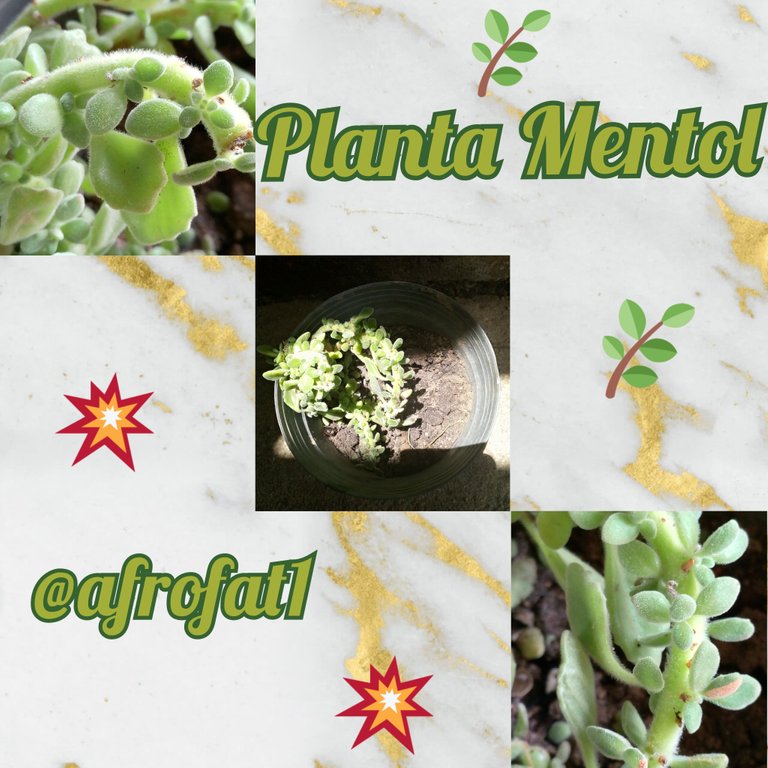
Soy amante a las plantas medicinales ya que mi mama tiene un jardin lleno de ellas,posee muchas plantas que sirven para tratar diversas enfermedades,en esta oportunidad les voy hablar sobre una planta que tiene muchas propiedades.
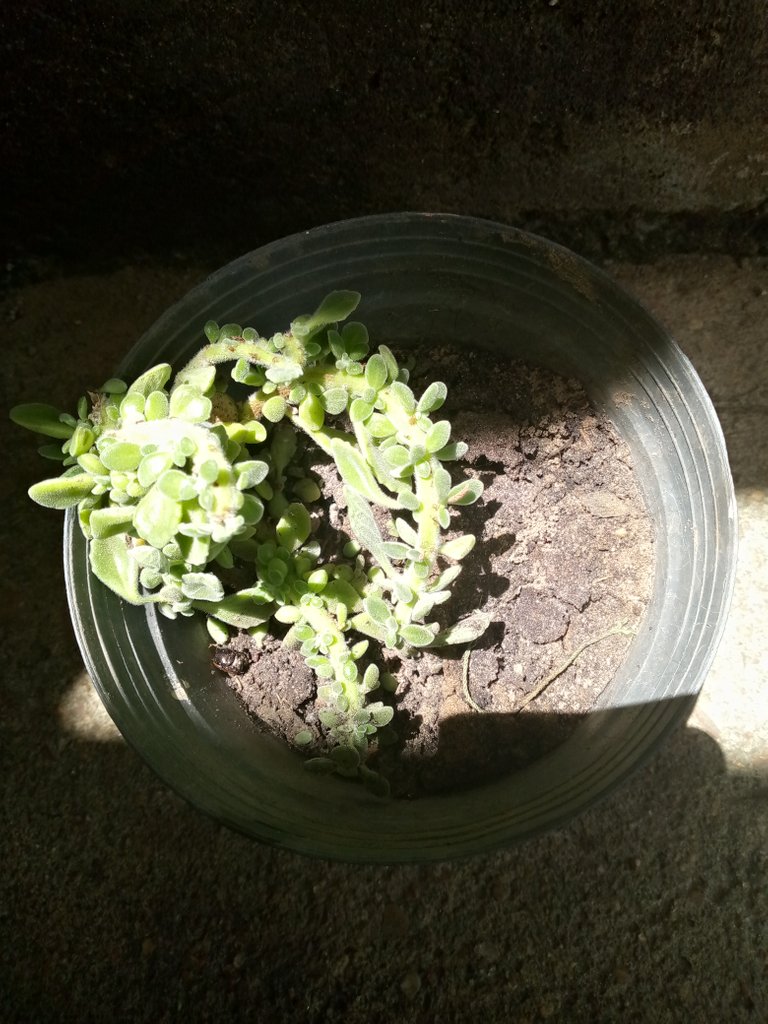
Esta hermosa y muy medicinal planta de mentol posee innumerables beneficios para nuestra salud.
A continuación,les hablare un poco sobre la planta de mentol sus propiedades, beneficios, contraindicaciones y cómo se puede obtener y cultivar,acompañenme.
El nombre científico de la planta de mentol es Mentha piperita, y también es conocida comúnmente como menta, hierbabuena o yerba buena. Esta planta se caracteriza por su alto contenido de mentol, una sustancia que le confiere su aroma fresco y que es ampliamente utilizada en la industria farmacéutica y cosmética.
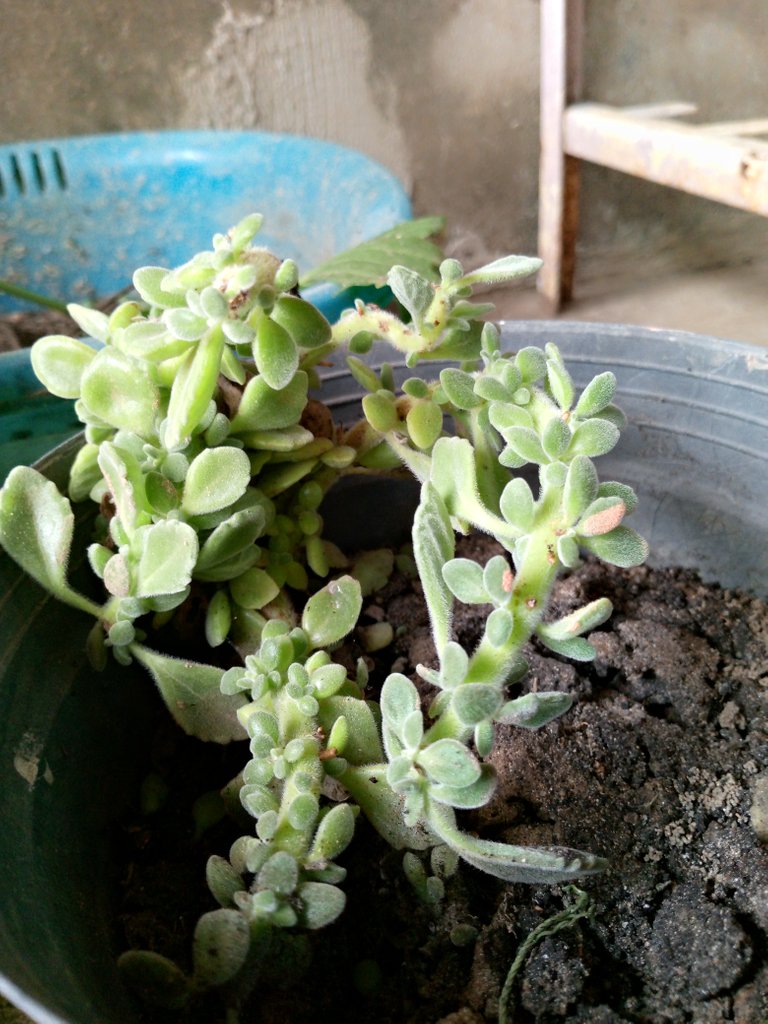
La planta de mentol tiene diversas propiedades medicinales. Su aroma y sabor a menta la convierten en un remedio natural para estimular el sistema digestivo. El consumo de infusiones de menta puede ayudar a aliviar los dolores de estómago, las náuseas, la indigestión y los malestares gástricos en general.
Asimismo, su contenido de mentol le confiere propiedades analgésicas y antiinflamatorias, lo que la hace muy útil para aliviar dolores musculares, dolores de cabeza, dolores de muelas y molestias articulares. Aplicar aceite esencial de menta en la zona afectada puede ayudar a calmar el dolor y reducir la inflamación.
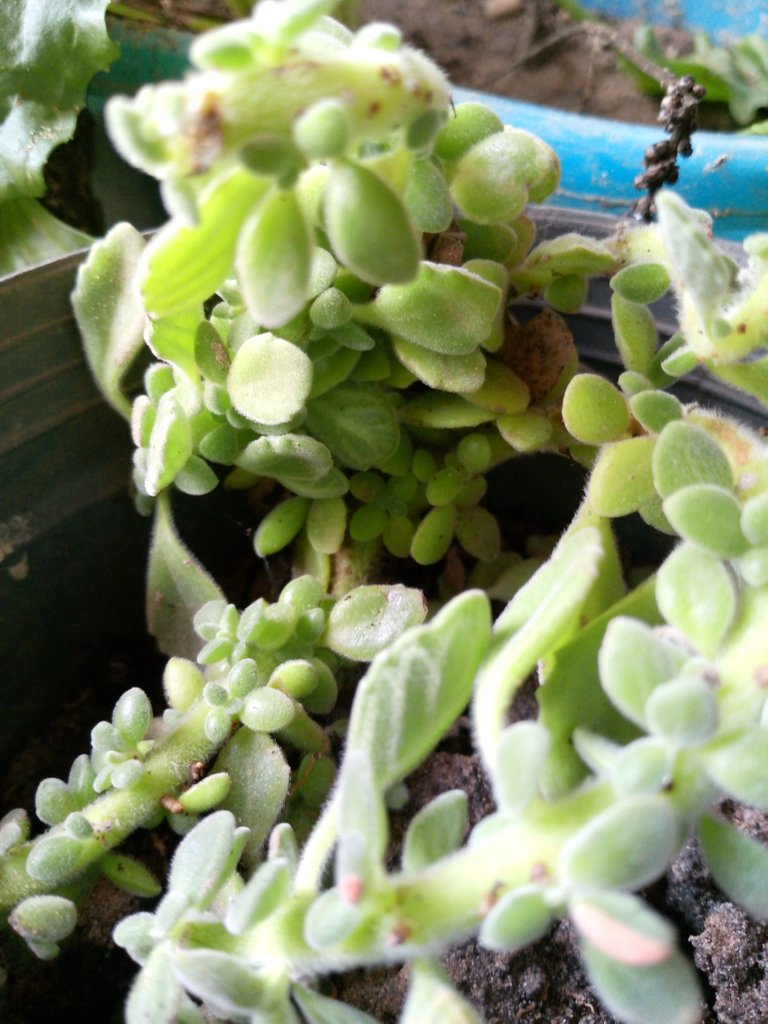
La menta también tiene propiedades expectorantes y descongestionantes, lo cual la convierte en un remedio natural para aliviar los síntomas de resfriados, gripes y problemas respiratorios como la congestión nasal y la tos.
Además, la planta de mentol es muy apreciada en la industria cosmética y de cuidado personal. El mentol se utiliza en productos como dentífricos, enjuagues bucales, champús, acondicionadores y lociones debido a su capacidad refrescante y estimulante. También es un ingrediente común en los bálsamos labiales para aliviar los labios agrietados y calmar la irritación.
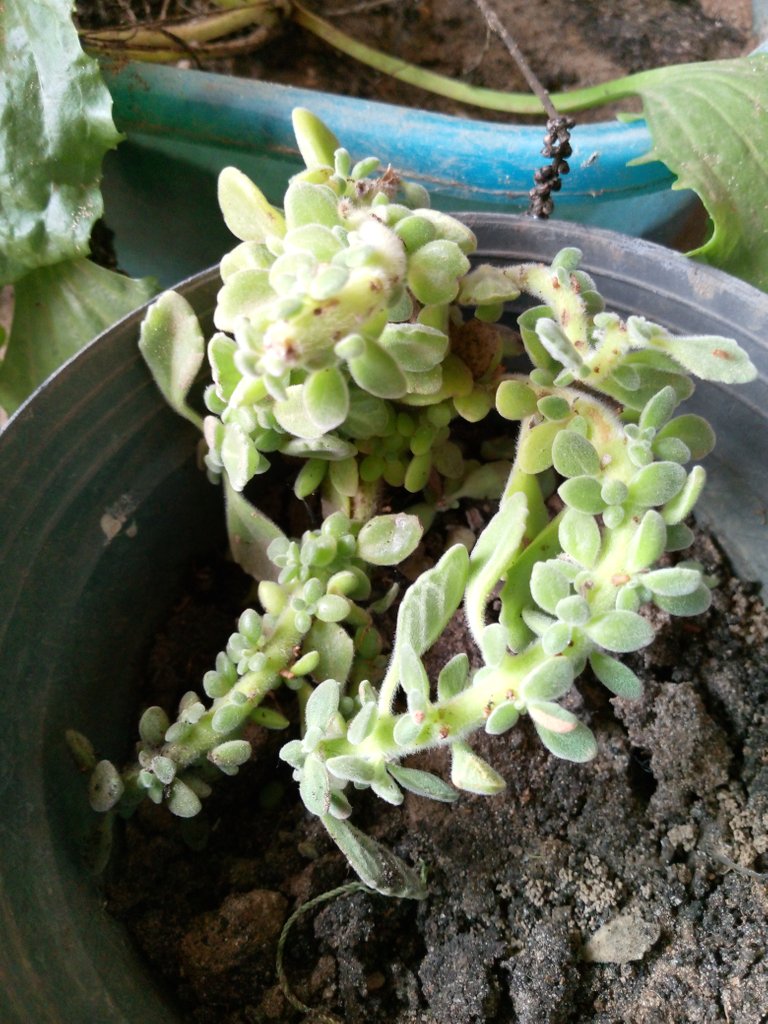
Sin embargo, a pesar de sus múltiples beneficios, es importante tener en cuenta algunas contraindicaciones y precauciones al usar la planta de mentol. Al ser una planta rica en mentol, su consumo excesivo puede causar acidez estomacal, ardor y malestar digestivo en algunas personas. Además, se debe tener precaución en personas con reflujo gastroesofágico o enfermedad de reflujo ácido, ya que puede agravar los síntomas.
La menta también puede interactuar con algunos medicamentos y afectar su efectividad. Por lo tanto, se recomienda consultar a un profesional de la salud antes de consumir infusiones de menta o productos con mentol si se está tomando algún tratamiento médico.
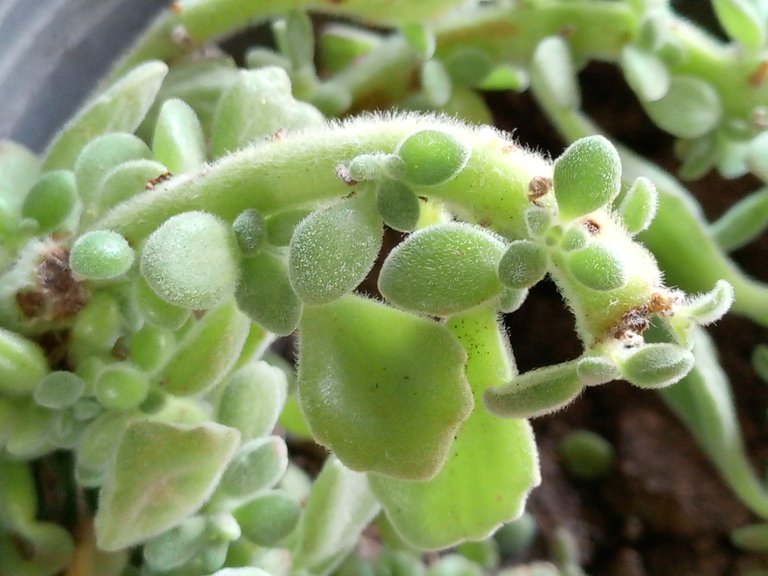
La planta de mentol se puede conseguir fácilmente en herbolarios, tiendas de productos naturales y supermercados. También es posible adquirirla en línea, a través de tiendas especializadas en hierbas medicinales y productos naturales. Asegúrese de obtener productos de calidad y de origen orgánico para garantizar su efectividad y pureza.
Si desea cultivar su propia planta de mentol, es posible hacerlo en casa. La menta es una planta perenne que crece bien en suelos ricos en nutrientes y bien drenados. Prefiere una exposición al sol o a media sombra. Puede cultivarse en macetas o en el jardín, pero es importante tener en cuenta que la menta puede ser bastante invasora, por lo que se recomienda plantarla en un recipiente grande o en una zona del jardín donde pueda expandirse sin causar problemas.
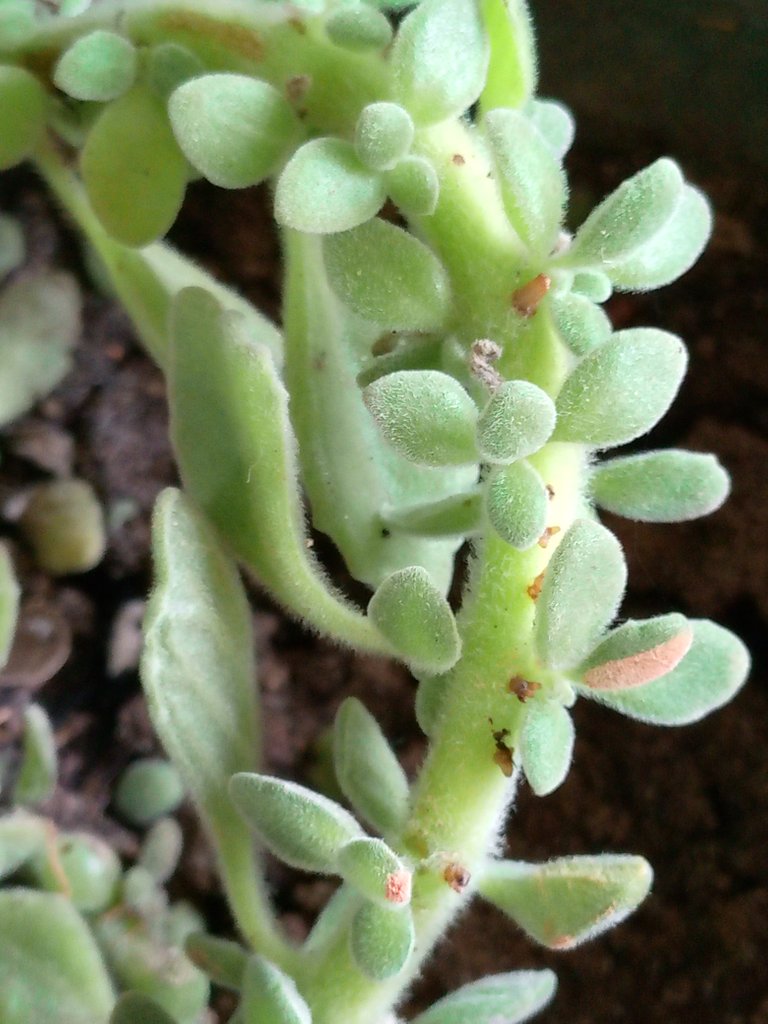
La menta se puede propagar mediante esquejes o división de rizomas. Para cultivar a partir de esquejes, simplemente corte un trozo de tallo con unas cuantas hojas y colóquelo en un vaso de agua para que desarrolle raíces. Cuando las raíces sean lo suficientemente largas, puede trasplantar el esqueje a una maceta o al jardín.
El riego de la menta debe ser constante para mantener el suelo húmedo, pero evitando el encharcamiento. Se recomienda regarla cuando la capa superior del sustrato esté seca al tacto. También es importante eliminar las malas hierbas y proporcionarle un sustrato rico en materia orgánica para un buen crecimiento y desarrollo.
En resumen, la planta de mentol es valorada por sus propiedades medicinales, su aroma refrescante y sus aplicaciones en la industria cosmética. Su consumo puede mejorar la digestión, aliviar dolores musculares y articulares, y aliviar los síntomas
Agradezco a todos por su atención en esta presentación sobre las plantas medicinales y, en particular, el mentol. Espero que este post les sea útil y les inspire a explorar el fascinante mundo de las plantas medicinales.
Muchas gracias por su atención
- Las fotos son de mi propiedad y fueron tomadas por mi teléfono tecno spark Go 2023
-Las imágenes son editadas mediante la aplicación editor de fotos polish
-Traductor Utilizado:Deelp traslater

I am a lover of medicinal plants because my mother has a garden full of them, has many plants that are used to treat various diseases, this time I will talk about a plant that has many properties.

This beautiful and very medicinal menthol plant has innumerable benefits for our health.
Next, I will tell you a little about the menthol plant, its properties, benefits, contraindications and how it can be obtained and cultivated, join me.
The scientific name of the menthol plant is Mentha piperita, and it is also commonly known as mint, peppermint or yerba buena. This plant is characterized by its high content of menthol, a substance that gives it its fresh aroma and is widely used in the pharmaceutical and cosmetic industry.

The menthol plant has various medicinal properties. Its minty aroma and flavor make it a natural remedy to stimulate the digestive system. The consumption of mint infusions can help relieve stomach pains, nausea, indigestion and gastric discomfort in general.
Also, its menthol content gives it analgesic and anti-inflammatory properties, which makes it very useful for relieving muscle aches, headaches, toothaches and joint discomfort. Applying peppermint essential oil to the affected area can help soothe pain and reduce inflammation.

Peppermint also has expectorant and decongestant properties, making it a natural remedy for relieving symptoms of colds, flus and respiratory problems such as nasal congestion and coughs.
In addition, the menthol plant is highly valued in the cosmetic and personal care industry. Menthol is used in products such as toothpastes, mouthwashes, shampoos, conditioners and lotions because of its cooling and stimulating properties. It is also a common ingredient in lip balms to soothe chapped lips and calm irritation.

However, despite its many benefits, it is important to be aware of some contraindications and precautions when using the menthol plant. Being a menthol-rich plant, its excessive consumption may cause heartburn, burning and digestive discomfort in some people. In addition, caution should be exercised in people with gastroesophageal reflux or acid reflux disease, as it may aggravate symptoms.
Peppermint may also interact with some medications and affect their effectiveness. Therefore, it is recommended to consult a health professional before consuming peppermint infusions or menthol products if you are taking any medical treatment.

The menthol plant is readily available in herbalists, health food stores and supermarkets. It is also possible to purchase it online, through stores specialized in medicinal herbs and natural products. Be sure to obtain quality products of organic origin to guarantee its effectiveness and purity.
If you wish to grow your own menthol plant, it is possible to do so at home. Peppermint is a perennial plant that grows well in nutrient-rich, well-drained soil. It prefers a sunny or part shade exposure. It can be grown in pots or in the garden, but it is important to keep in mind that mint can be quite invasive, so it is recommended to plant it in a large container or in an area of the garden where it can spread without causing problems.

Mint can be propagated by cuttings or rhizome division. To grow from cuttings, simply cut a piece of stem with a few leaves and place it in a glass of water to develop roots. When the roots are long enough, you can transplant the cutting into a pot or garden.
Watering mint should be constant to keep the soil moist, but avoid waterlogging. Watering is recommended when the top layer of the substrate is dry to the touch. It is also important to eliminate weeds and provide a substrate rich in organic matter for good growth and development.
In summary, the menthol plant is valued for its medicinal properties, its refreshing aroma and its applications in the cosmetic industry. Its consumption can improve digestion, relieve muscle and joint pain, and alleviate symptoms.
I thank you all for your attention to this presentation on medicinal plants and, in particular, menthol. I hope this post will be useful to you and inspire you to explore the fascinating world of medicinal plants.
Thank you very much for your attention
- The photos are my property and were taken by my tecno spark Go 2023 phone.
-The images are edited using polish photo editor application.
-Translator Used:Deelp traslater

